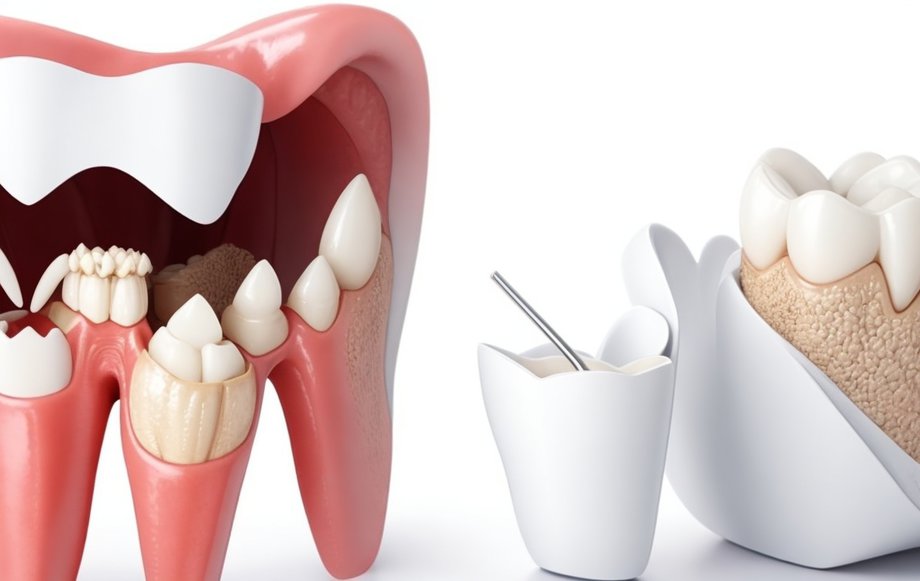Dental Caries: Causes, Symptoms, And Treatment

Do you suffer from tooth pain or sensitivity? Have you noticed discoloration or holes in your teeth?
These could be signs of dental caries, commonly known as tooth decay.
Dental caries is a prevalent oral health issue that affects people of all ages. It occurs when bacteria in your mouth produce acid that erodes your tooth’s protective layer, leading to cavities and gum disease.
Understanding the causes, symptoms, and treatment options for dental caries is crucial to maintaining your oral health.
In this article, we will explore the risk factors for developing dental caries, common symptoms to look out for, and the importance of proper oral hygiene.
We will also discuss dietary habits that affect dental health, available treatment options, and ways to prevent and maintain your oral health.
Key Takeaways
- Dental caries is caused by bacteria in the mouth producing acid and plaque buildup on teeth.
- Risk factors for tooth decay include frequent consumption of sugary or acidic foods and drinks, inadequate oral hygiene practices, and certain medications or health conditions.
- Symptoms of tooth decay include sensitivity, pain, dark spots or discoloration on teeth, and bad breath.
- Prevention and treatment options for dental caries include regular brushing and flossing, avoiding sugary and acidic foods and drinks, regular dental check-ups and cleanings, and treatment options such as fillings, crowns, root canal treatment, extraction, and fluoride treatment. Early detection and treatment can prevent more serious dental problems.
Understanding Plaque Buildup and Tooth Decay
You might not realize it, but plaque buildup on your teeth is the main cause of tooth decay, and it’s important to understand how it works in order to prevent it.
Plaque is a sticky film of bacteria that forms on your teeth and gums. When you eat or drink something with sugar or starch, the bacteria in the plaque produce acid, which can erode the enamel on your teeth and cause cavities.
The best way to prevent plaque buildup is to brush your teeth twice a day, floss daily, and visit your dentist regularly for cleanings and checkups. You should also watch what you eat and drink, as sugary and starchy foods and drinks can contribute to plaque buildup.
If you do develop cavities, your dentist can treat them with fillings, crowns, or other procedures, depending on the severity of the decay. So take care of your teeth and gums and keep that plaque at bay!
Risk Factors for Developing Dental Caries
Whether you’re a fan of sugary snacks or prefer to sip on acidic drinks, your daily habits can significantly increase your risk of developing tooth decay. While poor oral hygiene is a major contributor to dental caries, several other factors can also put you at risk.
Here are some of the most common risk factors for developing tooth decay:
- Frequent consumption of sugary or acidic foods and drinks
- Inadequate oral hygiene practices, such as infrequent brushing and flossing
- Dry mouth caused by certain medications or health conditions
Apart from these, certain lifestyle habits like smoking and alcohol consumption can also increase the risk of dental caries. Additionally, people with weakened immune systems and those who have had orthodontic treatment are also more susceptible to tooth decay.
By being aware of these risk factors and taking preventive measures, you can significantly reduce your chances of developing dental caries. So, make sure to maintain proper oral hygiene, limit your intake of sugary and acidic foods and drinks, and visit your dentist regularly for check-ups and cleanings.
By taking these simple steps, you can keep your teeth healthy and prevent tooth decay.
Common Symptoms of Tooth Decay
Experiencing sensitivity or pain in your teeth can be a sign of decay, indicating a need for prompt attention from a dental professional. You may also notice dark spots or discoloration on your teeth, which can be a sign of decay.
If you feel any of these symptoms, it’s important to see a dentist as soon as possible. Another common symptom of tooth decay is bad breath. This is caused by the bacteria that thrive in the decayed tooth, and can be difficult to eliminate with regular brushing and flossing alone.
If you notice a persistent bad taste or odor in your mouth, it’s important to see a dentist to determine the cause and receive appropriate treatment. Remember, early detection and treatment of tooth decay can prevent more serious dental problems from developing, so don’t hesitate to seek professional help if you experience any of these symptoms.
The Importance of Proper Oral Hygiene
Maintaining good oral hygiene is essential for preventing tooth decay and other dental problems. Here are some tips on how to maintain proper oral hygiene:
- Brush your teeth twice a day with fluoride toothpaste.
- Floss daily to remove plaque and food particles from between your teeth.
- Limit sugary and acidic foods and drinks, as they can increase the risk of tooth decay.
In addition to these tips, it’s also important to visit your dentist regularly for check-ups and cleanings. They can identify any potential issues early on and provide treatment before they become more serious. By following these simple steps, you can keep your teeth and gums healthy and prevent dental problems like tooth decay.
Dietary Habits That Affect Dental Health
You can easily improve the health of your teeth by making simple changes to your diet. One of the biggest culprits of dental caries is sugar. Consuming sugary foods and drinks regularly can lead to the erosion of tooth enamel and the development of cavities. Try to limit your intake of sugary foods and drinks, and opt for healthier alternatives like fresh fruits and vegetables instead.
Another dietary habit that affects dental health is frequent snacking. Snacking throughout the day can lead to a constant exposure of your teeth to harmful acids, which can cause tooth decay. Instead of snacking, try to eat three balanced meals a day. If you do need to snack, choose healthier options like nuts or cheese.
By making these simple changes to your diet, you can improve the health of your teeth and prevent dental caries.
Treatment Options for Dental Caries
If one is suffering from tooth decay, there are various options available for treatment. Here are some of the treatment options that your dentist may recommend to you:
- Fillings: This is the most common treatment for dental caries. The dentist will remove the decayed portion of the tooth and fill it with a material such as amalgam or composite resin.
- Crowns: If the decay is extensive and has affected a large portion of the tooth, the dentist may recommend a crown. A crown is a cap that fits over the remaining portion of the tooth and protects it from further decay.
- Root canal treatment: If the decay has reached the pulp of the tooth, the dentist may recommend a root canal treatment. This involves removing the infected pulp and filling the canal with a material to prevent further infection.
- Extraction: If the tooth is beyond repair, the dentist may recommend extraction. This involves removing the entire tooth from the socket.
- Fluoride treatment: In some cases, the dentist may recommend a fluoride treatment to help prevent further decay. Fluoride helps to strengthen the enamel and make it more resistant to decay.
It is important to seek treatment for dental caries as soon as possible to prevent further damage to the tooth and surrounding tissues. Your dentist will be able to recommend the best treatment option for your specific case. Remember, prevention’s the best cure, so make sure to maintain good oral hygiene and visit your dentist regularly for check-ups and cleanings.
Prevention and Maintenance of Oral Health
Taking care of your teeth and gums through regular brushing, flossing, and dental check-ups is essential for preventing oral health issues. You should brush your teeth at least twice a day, using fluoride toothpaste, and make sure to floss at least once a day to remove any plaque and food particles that might be stuck between your teeth.
Additionally, you should visit your dentist regularly for check-ups and cleanings, as this helps to identify and treat any potential problems before they become more serious.
In addition to these basic oral hygiene practices, there are other steps you can take to maintain good oral health. For example, you should avoid sugary and acidic foods and drinks, as these can erode your tooth enamel and contribute to the development of dental caries. You should also consider using a mouthwash to help kill bacteria in your mouth and freshen your breath.
By taking these steps and making oral health a priority, you can help prevent dental caries and other oral health problems from developing in the first place.
Conclusion
Congratulations! You’ve learned about dental caries, including its causes, symptoms, and treatment options.
By understanding the importance of proper oral hygiene and implementing good dietary habits, you can prevent tooth decay and maintain optimal oral health.
Remember to brush your teeth twice a day, floss daily, and visit your dentist regularly for check-ups and cleanings.
Avoid sugary and acidic foods and drinks, and opt for healthier alternatives like fruits and vegetables.
If you do develop dental caries, there are several treatment options available, including fillings, crowns, and root canals.
Don’t hesitate to seek professional help if you experience any symptoms of tooth decay.
By taking care of your teeth and gums, you can enjoy a healthy and beautiful smile for years to come!








